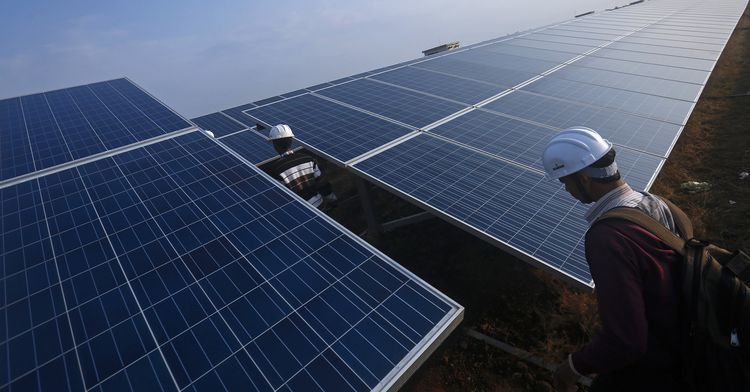
In the mid-2000’s, to comply with the European Commission’s objectives under Directive 2001/77/EC, many EU nations legislated to encourage foreign investors to establish renewable power generation capacity. In countries such as Spain and Italy, the focus was on solar power. These programmes offered such incentives as specified feed-in tariffs for lengthy periods and no limits on energy generation or distribution.
With the global financial crisis, such schemes became unbearably costly and many EU states amended or repealed those incentives. That undermined or even destroyed the profitability of investors’ schemes which had gone ahead on the basis of the existing legislative frameworks. Consequently, many investors brought arbitration claims under the Energy Charter Treaty (“ECT”), which protects foreign investments in the energy sector of signatory states from actions such as expropriation and unfair treatment. Decisions in those claims started to be made in 2016 and more awards were made in 2017. In part one of this article we explain how one of this year’s arbitration awards might have given investors a new hope.
Spain: Charanne B.V. and Construction Investments S.á.r.l v Kingdom of Spain (Arbitration No. 062/2012)
The first of these ECT cases to be decided was Charanne, in 2016. That case concerned Spain’s 2007-8 “Special Regime” to promote solar energy, offering investors a specified feed-in tariff for 25 years, following which certain generators would benefit from 80% of the feed-in tariff; entitlement to distribute all energy generated to the Spanish national grid; and no limitation on generation hours.
Between 2010 and 2012, Spain amended the Special Regime to reduce the availability of the feed-in tariff; add technical requirements regarding voltage dips; limit the operating hours subject to the feed-in tariff; and impose a charge for access to the grid. In 2013 and 2014 further measures were adopted, including a 7% tax on the value of energy fed into the grid; replacement of the original “Special Regime” with a system based upon remuneration measured against hypothetical “standard” costs; and (subsequently) a regime based upon investors receiving a “reasonable return” based upon a hypothetical “efficient” photovoltaic plant. These measures applied retrospectively.
In Charanne, the claimants alleged that the 2010 amendments breached Articles 10(1) and 10(12) (Fair and Equitable Treatment) and Article 13(1) (Expropriation) of the ECT. However, the majority of the tribunal held that the “legal order in force at the time” (the Special Regime) was not capable of creating “legitimate expectations” that the legislative framework would not change during the course of the regulatory life of the plants, since there was no specific promise to this effect. The claim was dismissed.
Spain: Eiser Infrastructure Limited and Energia Solar Luxembourg Sarl v Kingdom of Spain (ICSID Case No.ARB/13/36)
Diverging from the claim in Charanne, the claimants in Eiser complained about the 2013/14 amendments to the Special Regime, also arguing that they breached Articles 10(1) and 13(1) of the ECT. The claimants argued that, at the time of deciding to invest, they held reasonable expectations of a stable regulatory framework (based upon their own expert advice and Spain’s promotional materials). As a result they had leveraged their investments with substantial non-recourse loans.
The Tribunal (as in Charanne) rejected the claimants’ contention that the “Special Regime” provided them with immutable economic rights. However, the tribunal indicated that the 2010 measures complained about in Charanne “had far less dramatic effects than those at issue” in Eiser. The Tribunal went on to decide that Article 10(1) entitled the claimants to expect that Spain would not suddenly revise the regulatory regime upon which their investments were based to such a degree that all value in them was lost. Those expectations were found to be based upon not only the 2007 legislative framework, but also Spain’s further actions between 2010 and 2011 that had confirmed that the claimants’ plants would continue to receive the original favorable regulatory regime. The tribunal held that the 2013/14 amendments were a “total and unreasonable change”, which implemented an entirely new regime based upon assumptions different to those provided for in the 2007 legislation. That new regime had retroactive effect and was intended to significantly reduce subsidies paid to existing plant owners.
Consequently, the tribunal awarded the claimants damages of €128m, being the reduction in the fair market value of the investments, determined according to the current value of the past and present cash flows that had been lost on account of the 2013/14 measures.
Spain has applied for annulment of the award, alleging a failure to state reasons and a manifest excess of power, based upon the finding of a breach of Article 10(1) in circumstances where the tribunal held that Spain had a sovereign right to amend its legislation and had made no commitments as to a stable regulatory environment. Spain’s application also alleges that the claimant’s nominated arbitrator breached his obligation of independence and impartiality by failing to disclose a longstanding relationship with the claimants’ valuation experts. In a further development, on 14 November 2017, a New York court set aside confirmation of the award (a preliminary step to enforcement) on a procedural technicality.
Part two of this article will look at two further awards made in 2017 which might take some of the gloss off Eiser and muddy the waters still further.
Written by Partner Richard Power and Senior Associate Paul Baker at global law firm Clyde & Co